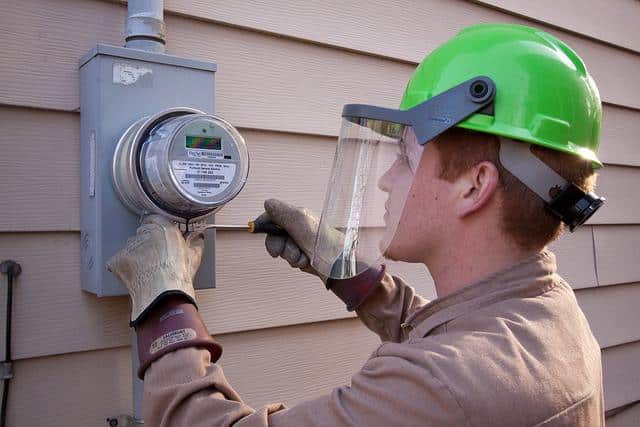Why More Doses May Increase Risk, According to New Research
Recent research from Japan has sparked an intense debate about the efficacy of COVID-19 vaccines, raising unexpected questions about how these vaccines impact infection rates.
A new study published in December 2024 suggests that vaccinated individuals are more likely to contract COVID-19 than their unvaccinated counterparts, with risks increasing as the number of doses rises. This finding could have significant implications for vaccination strategies, potentially leading to a re-evaluation of the current booster shot campaigns.
Let’s break down this study and similar findings to understand what they mean for public health.
What the Japanese Study Found
The study “Behavioral and Health Outcomes of mRNA COVID Vaccine” analyzed data from 913 participants across Japan. It revealed a surprising pattern for those new to the story. Individuals who had received COVID-19 vaccines were up to 85% more likely to contract the virus compared to those who were unvaccinated. Even more troubling, the likelihood of infection actually increased with the number of vaccine doses administered.
Researchers noted that those who received one or two doses were at a moderately elevated risk. Still, those with three or more doses saw their odds of infection more than double. The trend persisted even when accounting for age, sex, and other demographic variables.
The new study raises questions about the long-term effects of repeated vaccination on the immune system and infection risk.
Could Vaccines Be Altering the Immune Response?
One possible explanation lies in immune imprinting, also known as original antigenic sin. This occurs when the immune system is “trained” to recognize a specific strain of a virus from a vaccine. When exposed to newer variants, the immune system might struggle to adapt, focusing its defenses on the original strain instead of responding effectively to the evolved version.
Another hypothesis involves antibody-dependent enhancement (ADE). In this phenomenon, the presence of specific antibodies helps the virus enter cells, increasing the risk of infection. While not definitively proven in this case, these mechanisms highlight the complexity of immune responses to repeated vaccinations.

Are Behavioral Factors Playing a Role?
The Japanese study didn’t stop at biological explanations. Researchers also examined lifestyle factors that could influence infection rates. They discovered that participants who bathed less frequently or exercised less often were more likely to contract COVID-19, regardless of vaccination status.
In Japanese culture, regular bathing is a hygienic practice and a way to relax and improve circulation, which may support overall immune health. Similarly, exercise has long been recognized as a key factor in maintaining a robust immune system. The findings suggest vaccines are not a substitute for a healthy lifestyle.
Lessons from the Cleveland Clinic
The findings from Japan echo earlier research conducted at the Cleveland Clinic in the United States. In a 2021 study, healthcare workers who had previously recovered from COVID-19 and remained unvaccinated showed no reinfections, while vaccinated individuals experienced repeated, breakthrough infections.
The Cleveland Clinic researchers concluded that individuals with natural immunity from prior infections were unlikely to benefit from additional vaccine doses. This reinforces the idea that mass vaccinations of entire populations is not an efficacious strategy.
Why Isn’t This Headline News?
Despite these findings, regulators in many countries have been slow to respond. Vaccine campaigns have largely focused on encouraging financially profitable booster shots, even as studies like these suggest the dangers involved.
Some experts argue that the slow response is due to the challenges of translating emerging research into policy. Most investigators, however, believe it’s a matter of financial and political interests overshadowing scientific evidence. Whatever the reasons, it’s clear that more research and open dialogue are needed to guide public health decisions. Hopefully more transparency will take place in the new administration.
Rethinking Public Health Strategies
If vaccines alone can’t provide complete protection, what can? Experts point to the importance of a holistic approach to health, including proper nutrition, regular exercise, and adequate sleep. Lifestyle factors like these strengthen the immune system, making it better equipped to fight infections of all kinds.
Vitamin D, for example, has been widely studied for its role in immune function. Similarly, diets rich in antioxidants and proteins can help maintain a healthy immune response. And, let’s not forget the other supplements and off-label medications that continue to show great promise. Public health campaigns emphasizing these elements will be more effective in the long run.
The Future of COVID-19 Research
The Japanese study underscores the importance of continuous research into the long-term effects of COVID-19 vaccines, including the wide range of vaccine injuries. Also important is fostering public trust by being transparent about actual risks and scientifically honest benefits, reassuring Americans, and instilling confidence in public health measures.
Time For The Truth (We Can Handle It)
Why all the fuss? Simply this: More Americans have reportedly died from COVID-19 shots than were killed in World War I, World War II, and the Vietnam War combined. According to the Vaccine Adverse Event Reporting System (VAERS), there are roughly 38,000 recorded deaths linked to COVID-19 injections. Studies indicate VAERS may underreport events at a rate between 1 in 30 and 1 in 100. By that calculation, the number of Americans who lost their lives due to these shots could be as high as 3.8 million.
It is crucial to note that the actual deaths from the COVID-19 shots could be higher still. The VAERS data generally reflect only acute cases and early adverse events. Deaths that occur a year or more later, for instance, from heart disease, cancer, or other conditions, are not typically captured. As time goes by, these delayed fatalities are far less likely to be attributed to an injection taken years beforehand, despite the possibility that the shot was the underlying cause.
This underscores the need for caution and thorough evaluation. A robust evaluation of the full impact of these bioweapon injections on humanity is not just necessary… it’s imperative.
A robust evaluation of the full impact of these bioweapon injections on humanity is not just necessary, it’s imperative. This requires a thorough examination comparing all-cause mortality, along with the incidence of various diseases, in both vaccinated and unvaccinated groups. There is only a limited time window to undertake such a study.
Lastly, ignoring this situation will not make it disappear. The urgency of the situation demands that the mRNA vaccine platform must be halted immediately.










